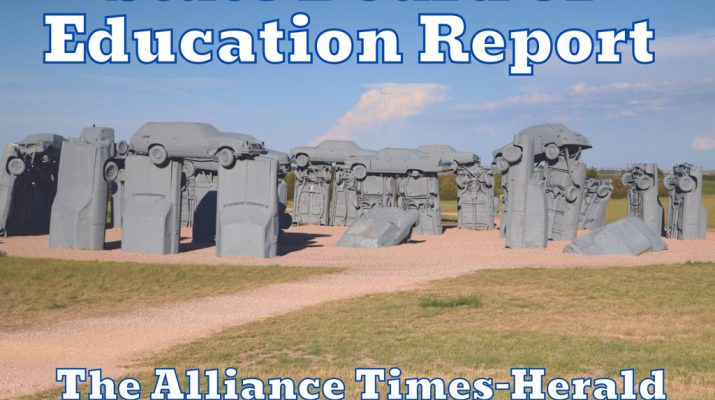By Elizabeth Tegtmeier
Dist. 7 State Board of Education Member
The Nebraska State Board of Education convened September 6 in Nebraska City for a remarkably short but significant meeting.
Nebraska Literacy Project Bolstered by $55 Million
On Sept. 3, the NDE was awarded a $55 million federal literacy grant which will be used to address the state board’s goal of 75% of Nebraska third graders being proficient in reading.
In June, the state board reallocated approximately $8 million in federal ESSER funds for early literacy training of Nebraska teachers. This amount was added to an allocation from the Nebraska Legislature of $1.8 million for early literacy.
The literacy plan being developed by the Nebraska Department of Education (NDE) came as a result of legislation passed this spring. With these added funds, Nebraskans should anticipate a significant change in the approach to reading instruction.
When other states have instituted similar reading instruction they have seen significant improvement in student reading proficiency. Mississippi, ranked the highest for child poverty and hunger, recently moved from 49th in fourth grade reading proficiency to 21st nationwide. A better understanding of how a child’s brain acquires written language coupled with scientifically-based instructional methods is the catalyst for these gains.
Statewide Student Assessment System Approved
One complaint I have regularly heard from Nebraska school administrators is the inconsistency of the federally required annual state assessments and the lack of usable data produced by the statewide assessment system.
In my time on the board, improvements have been made to increase the amount of data schools receive when doing fall and winter assessments to help direct classroom instruction to specific areas of deficiency as demonstrated on the assessments. The issue of a constantly changing test and assessment format has also been addressed after months of research by NDE staff. The board authorized the NDE Commission to contract with NWEA, a division of Houghton Mifflin Harcourt, for our statewide assessment.
Science Standards Approved
The board approved the proposed science standards. I was one of three dissenting votes. The science standards are intended to foster critical scientific thinking and examination of information. However, in the origin of life section only one theory is included in the standards. There are many different theories on the origin of life and students should be encouraged to scientifically examine evidence for and against various theories. When only one theory is presented, students are likely to accept it as fact and learn nothing of the scientific examination of information.
Public Input
Each meeting of the state board has an opportunity for public comments on the work of the board. Written public comments can be submitted via the state board of education website at least 24 hours before the board meeting.
Upcoming Meetings
The next board meeting will be held on Oct. 4 in Grand Island. Due to a number of education conferences held in the fall, the board will not meet in Nov. The last meeting of 2024 will be Dec. 6 in Lincoln.

